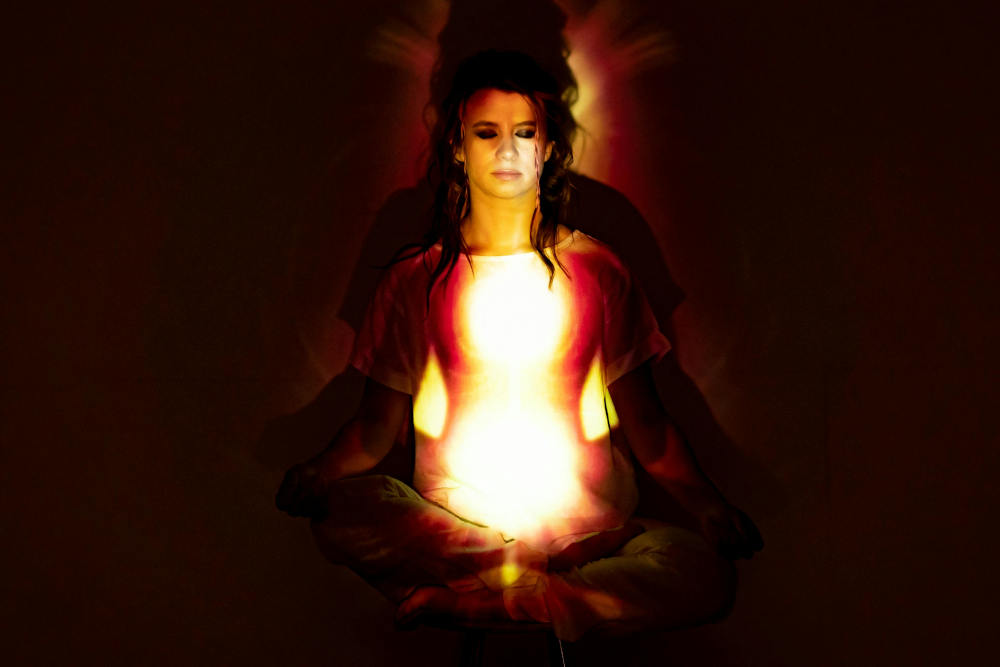
Human existence is one of the most profound and puzzling questions in philosophy. For centuries, thinkers have asked: Why are we here? What does it mean to be human? Is there a purpose to life? These aren’t just abstract questions — they touch the core of how we live, how we see ourselves, and how we relate to the world.
In philosophy, human existence is studied through different lenses — from the nature of being and consciousness to freedom, purpose, and mortality. The topic spans multiple traditions, including existentialism, phenomenology, metaphysics, and even spiritual philosophy. Let’s explore how different philosophical views explain what it means to exist as a human being.
Panaprium est indépendant et pris en charge par les lecteurs. Si vous achetez quelque chose via notre lien, nous pouvons gagner une commission. Si vous le pouvez, veuillez nous soutenir sur une base mensuelle. La mise en place prend moins d'une minute et vous aurez un impact important chaque mois. Merci!
1. Existence vs. Essence: The Core Debate
A central question in the philosophy of existence is whether essence precedes existence or vice versa.
-
Essence refers to the idea that something has a fixed nature or purpose.
-
Existence is the state of simply being, regardless of any defined purpose.
The French philosopher Jean-Paul Sartre, a leading existentialist, famously said, “Existence precedes essence.” This means that human beings are not born with a predetermined purpose. Instead, we first exist, and only later define ourselves through actions, choices, and experiences. According to Sartre, we are radically free — and that freedom can be both empowering and terrifying.
In contrast, classical thinkers like Aristotle believed that essence does come first. For example, a seed has the essence of a tree — it grows toward its natural form or purpose. Applied to humans, this view suggests we are born with a potential or purpose we’re meant to fulfill.
So, the debate boils down to this: Are we here to discover a purpose already built into us, or do we create our own meaning as we go?
2. Existentialism: Creating Meaning in an Absurd World
Existentialism is a major movement that deals directly with human existence. It emerged strongly in the 19th and 20th centuries, with key figures like Søren Kierkegaard, Friedrich Nietzsche, Jean-Paul Sartre, and Albert Camus.
Here’s what existentialists generally agree on:
-
Life has no inherent meaning.
-
Humans are free to choose and create meaning.
-
With freedom comes responsibility — and often anxiety.
Sartre believed that we are “condemned to be free.” Without a divine blueprint or destiny, we must take responsibility for shaping our own lives. This freedom can lead to anguish — the burden of choosing without clear guidance.
Albert Camus, another major existentialist, called life “absurd” because humans seek meaning in a universe that offers none. His famous metaphor of Sisyphus — condemned to roll a boulder up a hill forever — shows how human life can seem repetitive and meaningless. Yet, Camus argues that we must imagine Sisyphus happy, because meaning can still be found through rebellion, passion, and personal integrity.
Kierkegaard, often seen as the first existentialist, approached human existence from a Christian angle. He emphasized individual faith and the struggle of living an authentic life in a world full of distractions and despair.
3. Phenomenology: The Lived Experience
Another philosophical lens is phenomenology, founded by Edmund Husserl and expanded by thinkers like Martin Heidegger and Maurice Merleau-Ponty.
Phenomenology focuses on how we experience the world — not just in theory, but in lived reality. It looks at how objects, emotions, time, and other people show up in our conscious awareness.
Heidegger, a student of Husserl, shifted the focus toward Being itself. In his famous work Being and Time, he introduced the concept of Dasein (a German term meaning "being-there") to describe human existence.
According to Heidegger:
-
Human existence is defined by our awareness of Being.
-
We are always “thrown” into a world we didn’t choose, with history, culture, and language already shaping us.
-
We live with the knowledge of our mortality, which gives urgency and authenticity to life.
Heidegger’s view helps us see that human existence is not an abstract state — it’s a dynamic, unfolding relationship with time, death, and meaning.
4. Metaphysical Approaches: What Is a Human Being?
From a metaphysical point of view, human existence raises questions like:
-
What is a person?
-
What makes us different from animals or machines?
-
Are we just physical bodies, or do we have souls or consciousness that exist beyond matter?
Philosophers such as Plato and Descartes believed in dualism — the idea that the body and soul (or mind) are distinct. Plato saw the soul as eternal and more real than the physical body, while Descartes famously said, “I think, therefore I am,” placing consciousness at the center of existence.
On the other hand, materialists argue that everything about human existence can be explained through physical processes — the brain, genetics, evolution, and so on. In this view, consciousness is not a separate “thing,” but an emergent property of complex systems.
This debate is still alive in modern philosophy, especially in the philosophy of mind and artificial intelligence. Can machines be conscious? What makes human experience unique?
5. Human Freedom and Responsibility
Freedom is a major theme in discussions of human existence. The ability to choose — and to shape our own path — is often seen as what sets humans apart.
Immanuel Kant argued that humans have a unique moral capacity. We can act according to reason and moral law, rather than just instincts or desires. In Kant’s view, this makes us autonomous beings — capable of choosing what is right, even when it’s difficult.
Existentialist philosophers took this idea further, emphasizing not just our capacity to choose, but the weight of that choice. Sartre warned against bad faith — the tendency to lie to ourselves or conform to social roles instead of living authentically.
This idea challenges us to look inward. Are we really living the life we want? Or are we avoiding freedom by following the crowd?
6. Death, Mortality, and the Search for Meaning
Mortality plays a big role in philosophical discussions about human existence. The awareness of death shapes how we live.
For Heidegger, being aware of death is what makes us truly human. When we confront our finiteness, we begin to live more authentically. We stop wasting time and start asking deeper questions.
Epicurus, an ancient Greek philosopher, offered a different take. He believed that fearing death is irrational, because when we die, we no longer exist — so there’s nothing to fear. His philosophy encourages people to seek peace and pleasure in this life, rather than worry about what comes after.
Religious and spiritual philosophies often bring a different perspective, seeing death not as the end, but as a transition or return to a higher reality. In many traditions, human existence is a journey of the soul — a temporary experience in the physical world.
7. Modern Perspectives: Identity, Society, and Technology
Today, questions of human existence are being reexamined through new lenses — including psychology, social theory, and technology.
-
Psychoanalytic thinkers like Freud explored the unconscious mind, showing how hidden desires shape our choices.
-
Feminist philosophers have asked: Whose existence is being described in traditional philosophy? Who gets to define what it means to be human?
-
Postmodern philosophers like Michel Foucault have challenged the idea of a fixed human “self.” Instead, they see identity as shaped by language, power, and culture.
And with the rise of artificial intelligence, philosophers are now asking: Can consciousness be created? If machines think, are they alive? These questions push us to redefine what it means to be human in an increasingly digital world.
Conclusion: What Does It Mean to Exist?
Philosophy doesn’t give one final answer to the question of human existence — and that’s part of its beauty. Instead, it opens up a rich space for questioning, reflection, and exploration.
From ancient ideas of soul and purpose to modern views of freedom, identity, and mortality, the study of human existence helps us confront the deepest parts of life:
-
Who are we?
-
Why are we here?
-
How should we live?
In the end, perhaps the most powerful insight is this: To be human is not just to exist, but to ask what existence means.
And in asking — honestly, deeply, and continually — we become more fully alive.
Cet article vous a-t-il été utile ? S'il vous plaît dites-nous ce que vous avez aimé ou n'avez pas aimé dans les commentaires ci-dessous.
About the Author: Alex Assoune
Contre Quoi Nous Luttons
Les groupes multinationaux surproduisent des produits bon marché dans les pays les plus pauvres.
Des usines de production où les conditions s’apparentent à celles d’ateliers clandestins et qui sous-payent les travailleurs.
Des conglomérats médiatiques faisant la promotion de produits non éthiques et non durables.
De mauvais acteurs encourageant la surconsommation par un comportement inconscient.
- - - -
Heureusement, nous avons nos supporters, dont vous.
Panaprium est financé par des lecteurs comme vous qui souhaitent nous rejoindre dans notre mission visant à rendre le monde entièrement respectueux de l'environnement.
Si vous le pouvez, veuillez nous soutenir sur une base mensuelle. Cela prend moins d'une minute et vous aurez un impact important chaque mois. Merci.































0 commentaires